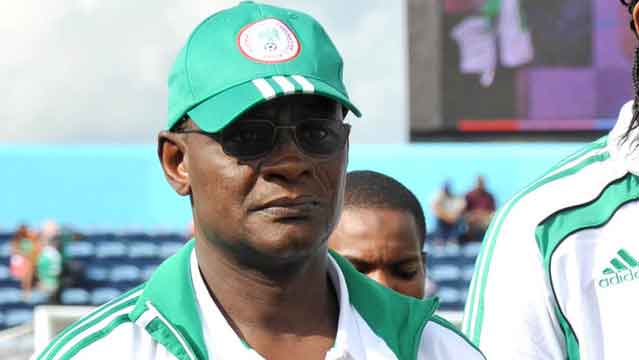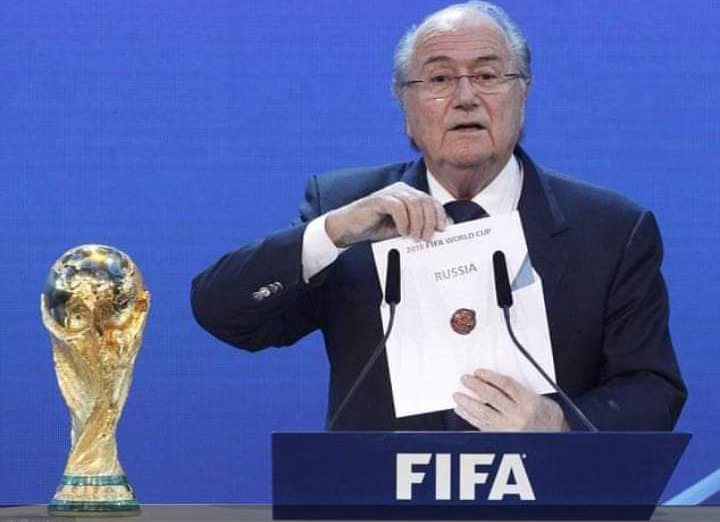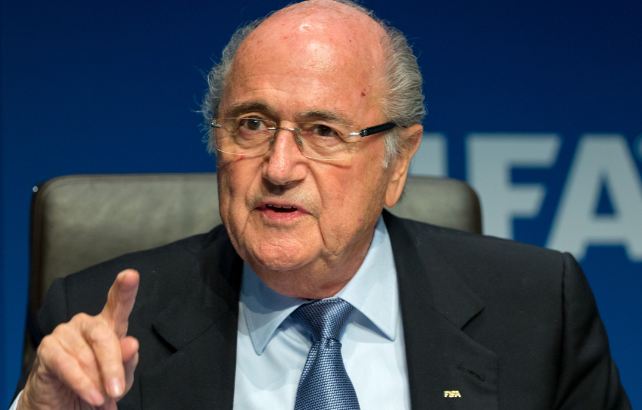Former world football governing body FIFA chief Sepp Blatter says he is shocked at a rule which has been inserted into the World Cup bidding process.
The rule referred to by Blatter could allow a five-man task force to disqualify a candidate before a democratic vote is held.
In 2011 the FIFA Congress, where each of the global soccer body’s 211 member associations hold one vote, was given the right to choose the World Cup hosts following a change proposed by Blatter while he was president.
The first hosting decision since then will be in June at the Congress in Moscow, where only two bids are in the running, a joint proposal from the United States/Canada/Mexico and one from Morocco.
However, the two bids must first pass a technical inspection from a five-man task force, which has the power to disqualify a candidate whose proposal is seen as not up to scratch.
Blatter told Reuters that both candidates should have the right to present their bids to Congress.
He was banned for six years in 2015 for unethical conduct but has repeatedly denied wrongdoing and believes he can get the suspension reversed.
The Swiss said he was concerned “that there is a movement” where a “special task force” will be given power “to decide who will be a candidate or not”. He added: “That is not possible.”
“You cannot deny one of the candidates (the chance) to go to Congress. This is a principle and I stick to this principle… I was shocked.”
Before 2011, World Cup hosting was decided by FIFA’s executive committee, which had 24 members at the time.
But the previous bidding process, for the 2018 and 2022 tournaments, became embroiled in allegations of illegitimate attempts to influence the committee’s voting members.
The finals were awarded to Russia and Qatar respectively at the same time after a vote in December 2010.
A subsequent FIFA investigation detailed numerous attempts to influence the voting officials but there was no suggestion the race should be re-run.
Swiss Blatter, FIFA president from 1998 to 2015, was also wary of the new 48-team format to be used at the 2026 World Cup when the tournament will be increased from 32 countries.
The teams will be divided into 16 groups of three in the first round, with the top two qualifying for the round of 32. One team in each group will not play on a given match day.
“We will see what will happen with 48 teams but one thing cannot be done – to play in groups of three because we had this problem in 1982 in Spain,” Blatter said.
In that tournament, the second round had four groups of three teams, with the winners qualifying for the semi-finals.
The format was never used again during Blatter’s tenure.
“In groups of three, there is always one spectator (a team who will not be in action),” he added.
The 82-year-old was also wary of the video assistant referee (VAR) system which was approved by soccer’s rule-making body IFAB in March and will be used at this year’s World Cup.
“For a purist in football as I am, I think it is an innovation which is going too fast,” said Blatter.
“Most of the referees have never worked this system and to go the World Cup and to introduce this system in the World Cup, I think it is not very clever.”
Blatter said that when VAR was first mooted, the idea was to give teams the right to challenge decisions, as in tennis or cricket.
But under the system approved in March, the referee or the video assistant decides when to review a decision.
“I don’t feel comfortable, definitely not, and spectators don’t feel comfortable,” he said.
Blatter remained confident he could overturn his ban, which was imposed by FIFA’s ethics committee shortly after the Swiss attorney general’s office began criminal proceedings against him on suspicion of criminal mismanagement and misappropriation.
No charges have yet been brought and Blatter has repeatedly denied any wrongdoing.
“So if they come to the solution (conclusion) that it is not criminal, then why, why have we been suspended?” he asked.
“There is a possibility that this suspension will be lifted, although I don’t think it will happen before the World Cup.”
Reuters




